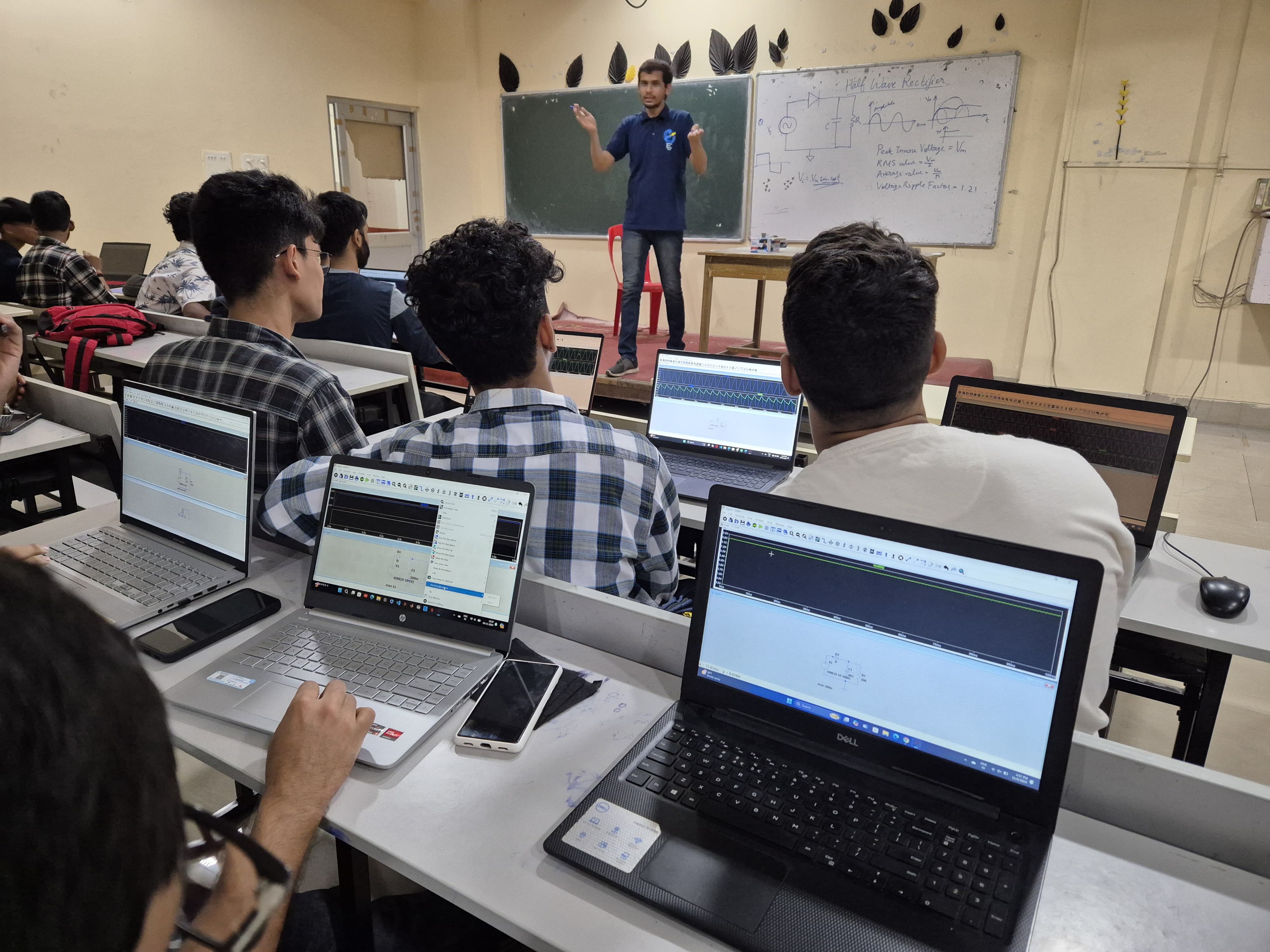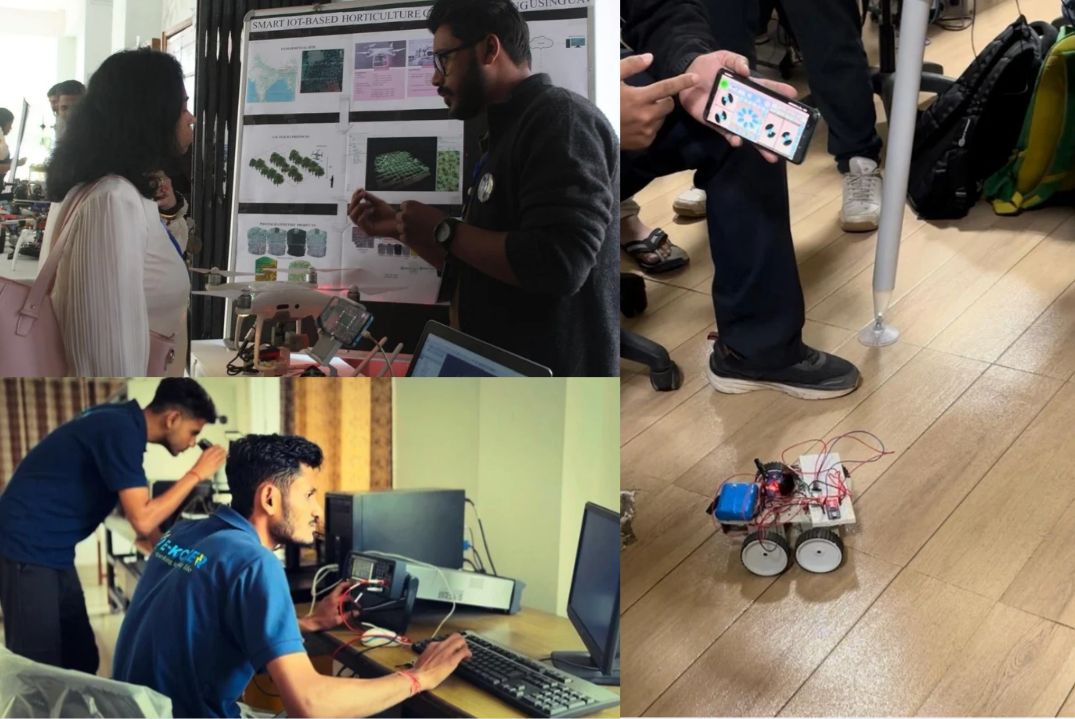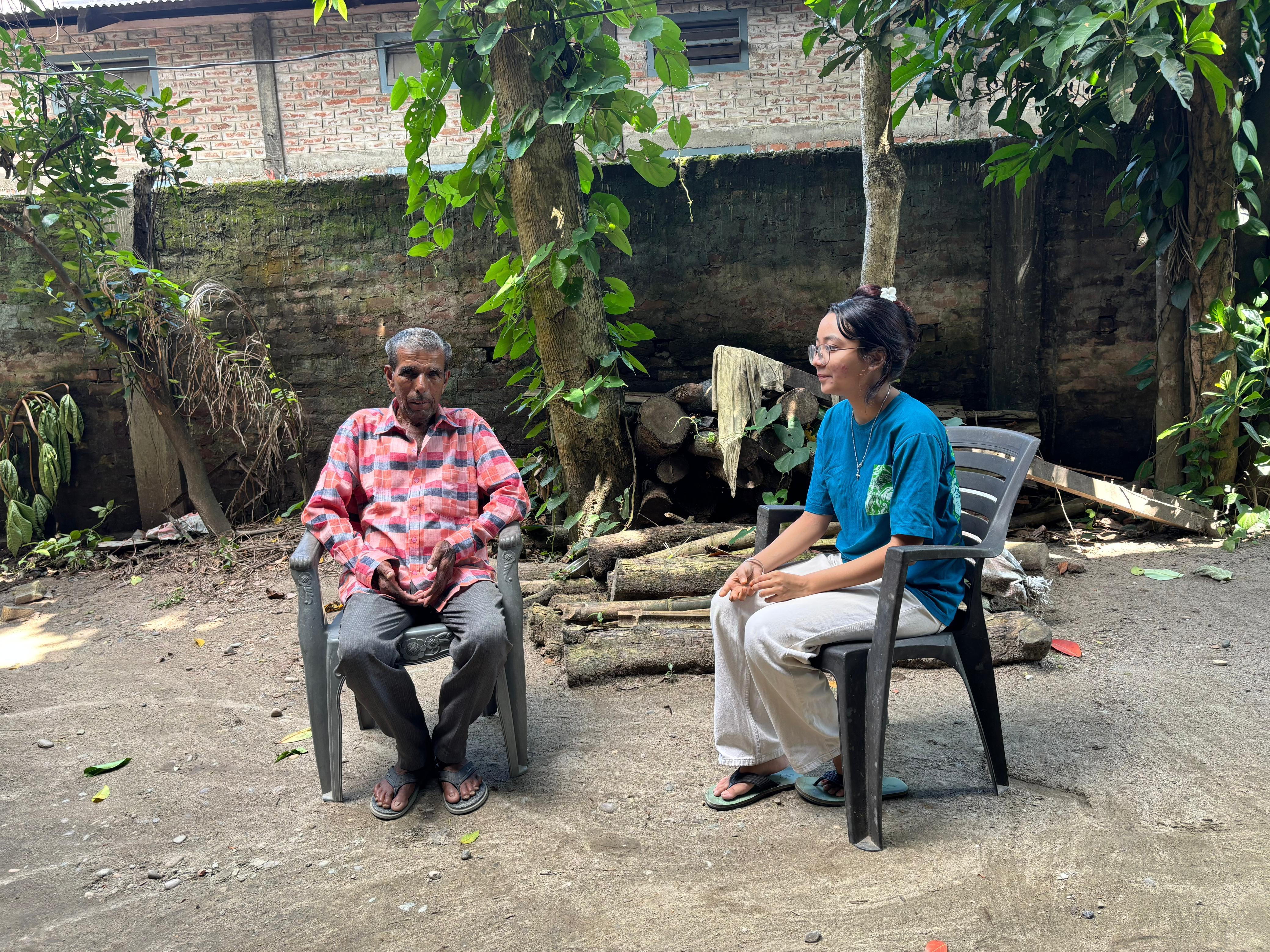
Student-Centered Learning Approach
In our flipped classrooms, students review lecture materials at home through videos and readings, while classroom time is dedicated to discussions, problem-solving, and hands-on activities with faculty guidance.
- Increased student engagement and participation
- More personalized instruction time
- Better preparation for practical sessions
- Flexible learning pace for students

Interactive Learning Sessions
Classroom time transforms into active learning spaces where students collaborate on projects, engage in peer instruction, and clarify concepts with faculty through targeted discussions.
- Pre-class video lectures and readings
- In-class concept application activities
- Regular formative assessments
- Continuous feedback loops





















